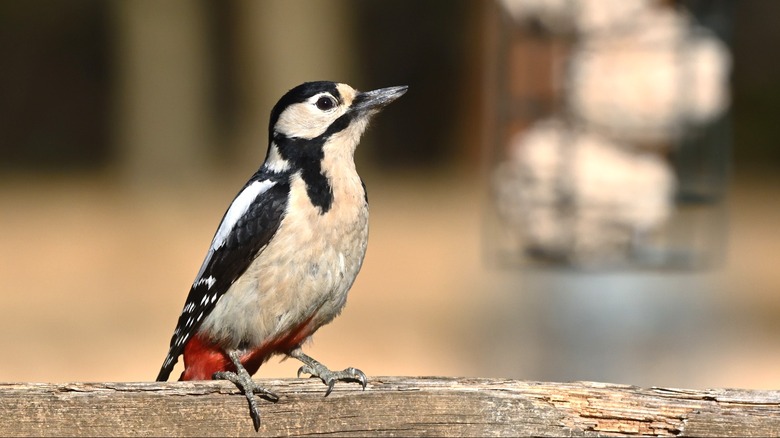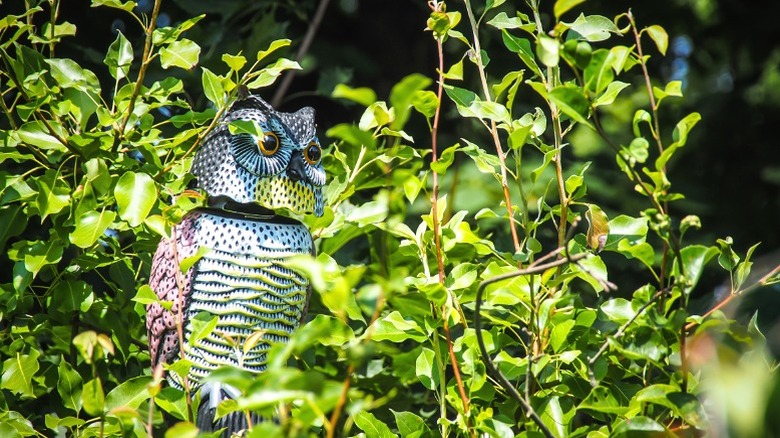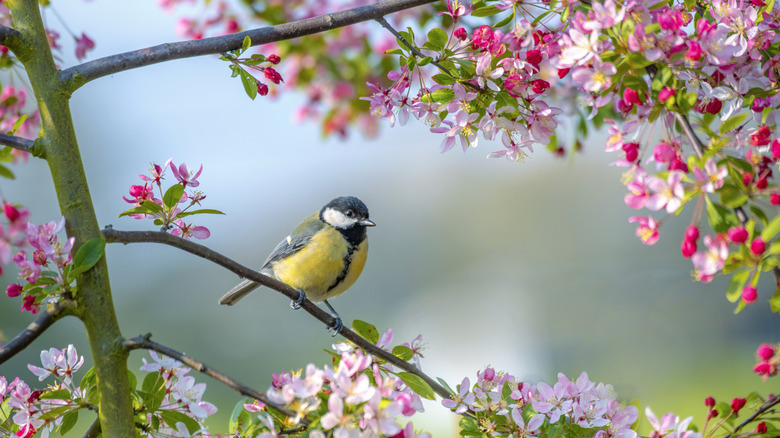Mistakes Everyone Makes When Trying To Deter Birds
While a backyard teeming with wildlife is the harmonious relationship so many of us wish to have with nature, there's often a limit to what we can tolerate. Alongside the hummingbirds and songbirds supplying their sensory delights, there are just as many birds you don't want to see in your yard. Fortunately, you can find tons of suggestions online to make quick and easy work of deterring unwanted visitors. This doesn't mean that it's all well-researched, however, and a significant portion of the information you'll find isn't worth the effort.
Too many DIY tips and hacks to get birds out of your yard come from novices who don't appreciate how or why their solutions work. They might have worked for one person, but the same techniques may not do a thing to manage your issues. So, which mistakes are you making? Rather than dig into more amateur advice, we reached out to Cathy Wise, Senior Manager of Community Building at Audubon Southwest, for an exclusive House Digest interview about what's worth trying and which bird deterrents you should skip.
According to Wise, context is key. In suburban neighborhoods, for instance, a yard overrun with pigeons might require unique removal efforts. "Suburban homeowners inundated with pigeons should remove seed feeders, ask neighbors to do the same, and cage off (or add spike strips) to eaves and other potential roosting and nesting areas," she suggested. If you understand their nature, you'll find the best way to get rid of them and mistakes to avoid. And, as Wise pointed out, that can vary significantly from one bird problem to the next.
Common bird deterrent mistakes and pro tips to try instead
Wise noted that a mistake we often make when trying to deter birds is underestimating their intelligence. Fooling a bird isn't necessarily easy. Take suburban pigeons, an issue many think they can address with a few well-placed predator dummies. "Fake immobile owl sculptures do little," Wise stated in her exclusive interview with House Digest. "Pigeons aren't as dumb as you think." Once they realize the sculpture's a phony, there's nothing stopping a bird from doing what they want.
Wise highlights the power of making birds uncomfortable in the space through smarter, humane techniques. "Neighborhood ponds overrun with Canada [geese] or other waterfowl can employ simple pond earth-sculpting techniques that will send the honkers looking for other digs," Wise recommended, showing homeowners how to handle another flocking variety common to suburban areas. Meanwhile, you can manage woodpeckers by taking away their fun. "In spring, male woodpeckers seek out the best sounding wood for 'drumming' — a sort of mating call," she said. "You can deter his activity by temporarily placing foam or another sound dampening agent over the drum site. You can remove the dampening substance after breeding season (summer)."
For everyday songbirds, the solutions can be surprisingly simple. In fact, you may already have what it takes to rid your garden of pesky birds if you follow certain proven hacks. "Ideas to deter songbirds include installing devices that play falcon calls at intermittent intervals or placing hanging items like old CDs or Teflon tape that are flashy and move in the wind," Wise suggested.
Keeping birds safe with deterrents and stewardship insights
Even if you welcome birds of all types and in any amount, one unexpected mistake many people make is not doing enough to deter birds responsibly. While you may have no issue attracting the types of birds you want in your yard, some situations may cause issues for you and/or your garden guests. "These instances would include hazardous environmental conditions (i.e. tainted water sources, large- scale construction projects) or Homeowner Association (HOA) restrictions," Wise said in her exclusive interview with House Digest.
Otherwise, Wise promotes the benefits of letting birds be birds. She advises carefully considering if you should spend time, money, and effort on repellents, no matter the birds your yard attracts. "Please remember that birds are miraculous, even those humans abhor," she stated. "Birds eat insects, pollinate plants, and dispose of our refuse. As bird numbers worldwide plummet, think twice about control measures and choose those that do the least harm. Predator calls will drive away pigeons, true, but also the migrating hummingbird just needing rest."


